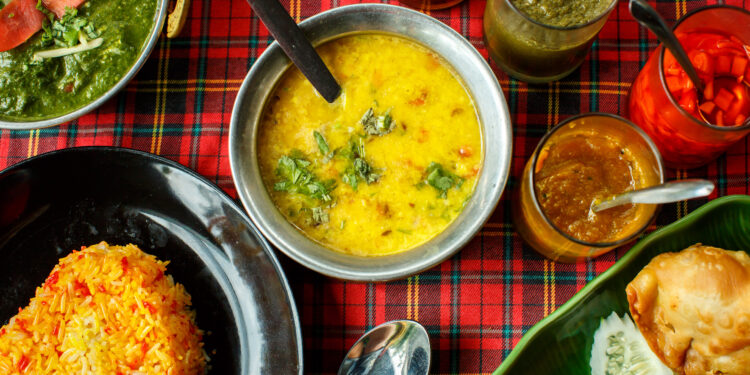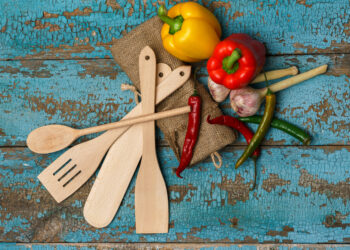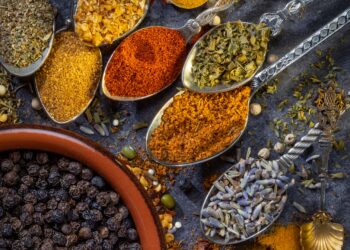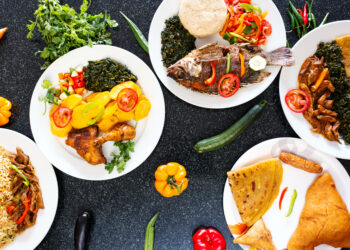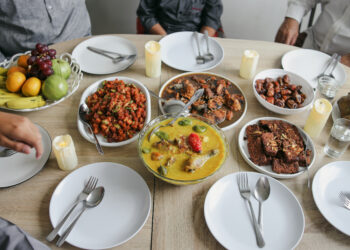Indo-Caribbean Vegetarian Recipes for Navratri Fasting bring together two vibrant food traditions: the spiritual simplicity of Hindu fasting and the bold, sunshine-infused flavours of the Caribbean. Navratri, a nine-day Hindu festival dedicated to the Goddess Durga, is often observed with vegetarian meals, many of which are free of grains, onions, and garlic. While the rules of fasting vary from family to family, the common thread is purity, balance, and food that nourishes both body and spirit. Now, add in the Indo-Caribbean twist, spices that have danced across oceans, tropical produce, and a flair for hearty yet wholesome cooking, and you have a fasting table that’s anything but bland.
Why Navratri Matters to the Indo-Caribbean Community?
Navratri has always been a cornerstone of the Indo-Caribbean Hindu calendar, whether in Trinidad, Guyana, Suriname, or now across diaspora hubs in London, Birmingham, and Leicester. The festival represents devotion, discipline, and a chance to reset spiritually. But food is never far behind faith. In many families, fasting menus avoid meat, fish, alcohol, onion, garlic, and sometimes even grains. Instead, tubers, fruits, milk, nuts, and certain flours take centre stage.
Indo-Caribbean kitchens are already experts at making plant-based food satisfying. From pumpkin and spinach bhajis to split pea dals and coconut stews, these traditions naturally align with fasting rules — albeit with a Caribbean sunshine kick.
Core Ingredients in Indo-Caribbean Navratri Cooking
Before we get cooking, let’s line up the pantry:
- Root Vegetables: Sweet potato, yam, cassava
- Plantains & Green Bananas: Excellent for fried snacks or steamed sides.
- Pumpkin & Squash: Stars of the Indo-Caribbean table, perfect for curries.
- Leafy Greens: Callaloo (amaranth), spinach, or chana bhaji (chickpea leaves).
- Fasting Flours: Singhara (water chestnut), kuttu (buckwheat), and tapioca pearls (sabudana).
- Spices: Jeera (cumin), turmeric, ginger, green chillies — but used with restraint to respect the sattvic (pure) principle.
Recipe 1: Pumpkin Talkari for Fasting
Pumpkin, or “pumpkin talkari” as it’s fondly called, is one of the simplest Indo-Caribbean dishes — and it ticks every Navratri box.
Ingredients:
- 500g pumpkin, peeled and cubed
- 2 tbsp ghee or sunflower oil
- 1 tsp cumin seeds
- 1–2 green chillies, slit
- 1 tsp grated ginger
- Salt (sendha namak/rock salt, if strictly fasting)
- Fresh coriander, chopped
Method:
- Heat ghee in a pan, add cumin seeds until they sizzle.
- Add pumpkin, chillies, and ginger. Stir well.
- Cover and cook on low until the pumpkin softens.
- Sprinkle coriander on top before serving.
Sweet, savoury, and satvik. Best enjoyed with singhara flour rotis.
Recipe 2: Plantain Chips with a Fasting Twist
Plantain chips are a popular snack across the Caribbean, and they can be enjoyed during Navratri if fried in clean oil and seasoned with rock salt.
Ingredients:
- 2 green plantains
- Oil for frying
- Rock salt
Method:
- Peel and slice plantains thinly
- Deep fry until golden and crisp.
- Drain, sprinkle with rock salt, and store in an airtight container.
They vanish quickly, so make double.
Recipe 3: Sabudana & Coconut Khichdi, Caribbean-Style
Sabudana (tapioca pearls) khichdi is a Navratri staple in India. In the Caribbean, coconut is queen, so here’s a fusion.
Ingredients:
- 1 cup soaked sabudana
- ½ cup grated fresh coconut
- 2 tbsp ghee
- 1 tsp cumin seeds
- 2 green chillies, chopped
- 1 boiled potato, cubed
- Rock salt to taste
- Fresh coriander
Method:
- Heat ghee, add cumin seeds and chillies.
- Toss in potato cubes until lightly browned.
- Add sabudana, stir until pearls turn translucent.
- Fold in grated coconut and coriander.
Soft, chewy, nutty — and distinctly Indo-Caribbean.
Recipe 4: Cassava & Coconut Stew
Cassava (yuca) is a Caribbean staple. This gentle stew is creamy, filling, and sattvic.
Ingredients:
- 500g cassava, peeled and cubed
- 200ml coconut milk
- 1 tbsp ghee
- 1 tsp cumin
- 1 inch ginger, grated
- Rock salt
- Coriander leaves
Method:
- Boil cassava until tender.
- In another pot, heat ghee, add cumin and ginger.
- Add boiled cassava, stir in coconut milk, and simmer.
- Garnish with coriander.
Think of it as Caribbean comfort food meets fasting purity.
Recipe 5: Singhara Flour Roti
Every curry needs its roti, even during fasting. Singhara flour is gluten-free and fasting-approved.
Ingredients:
- 2 cups singhara flour
- 1 boiled potato, mashed
- Rock salt
- Warm water
Method:
- Mix flour, potato, and salt.
- Add water gradually to make a soft dough.
- Roll into small rotis and cook on a tawa until golden.
They’re softer than wheat rotis, but perfect with pumpkin or cassava.
Tips for Fasting the Indo-Caribbean Way in the UK
- Shop Smart: Many Indian stores in the UK stock sabudana, singhara flour, and fasting-friendly salts. For Caribbean produce like cassava and plantain, try Brixton Market (London) or your local West Indian grocer.
- Balance Flavours: Indo-Caribbean food tends to love bold seasoning, but Navratri meals should be milder. Use ginger and fresh herbs for flavour without overpowering spice.
- Hydrate: Coconut water makes a brilliant fasting drink — both Caribbean-approved and Navratri-compliant.
Modern Twists: Fusion Ideas
- Pumpkin & Quinoa Bowl: Swap rice for quinoa (some families allow it) with pumpkin curry.
- Plantain Sabudana Tikki: Mash plantain with sabudana pearls, shape into patties, and shallow fry.
- Cassava Coconut Ladoo: Blend boiled cassava with coconut, sweeten with dates, and roll into energy bites.
Because who says fasting food can’t flirt with modernity?
The Spirit Behind the Plate
Ultimately, Navratri fasting isn’t just about what is served on your plate. It is a period of mindfulness, gratitude, and spiritual reflection. The act of simplifying food choices for nine days is intended to create space for prayer, discipline, and a calmer state of mind. At the same time, food remains an important part of the experience, offering nourishment and comfort while following the fasting guidelines. Dishes such as pumpkin talkari, cassava stew, and plantain chips not only meet dietary requirements but also connect families to tradition, community, and cultural identity. In this way, Navratri meals become more than sustenance—they become a means of honouring heritage, maintaining balance, and finding strength during a sacred time.
Final Thoughts!
Indo-Caribbean Vegetarian Recipes for Navratri Fasting show how faith and food can come together with balance. These recipes blend Indian fasting traditions with Caribbean ingredients, offering meals that are both nourishing and meaningful. Whether you are in Trinidad, London, or Leicester, you can observe Navratri with dishes that support devotion while still providing variety and taste.
Prepare your plantains, simmer your cassava, and allow your fasting table to reflect both tradition and cultural diversity. Navratri is a celebration of light over darkness, and food plays an important role in that journey. For more recipes, cultural insights, and ideas, follow CurryBien and keep connected with the Indo-Caribbean kitchen and its traditions.


